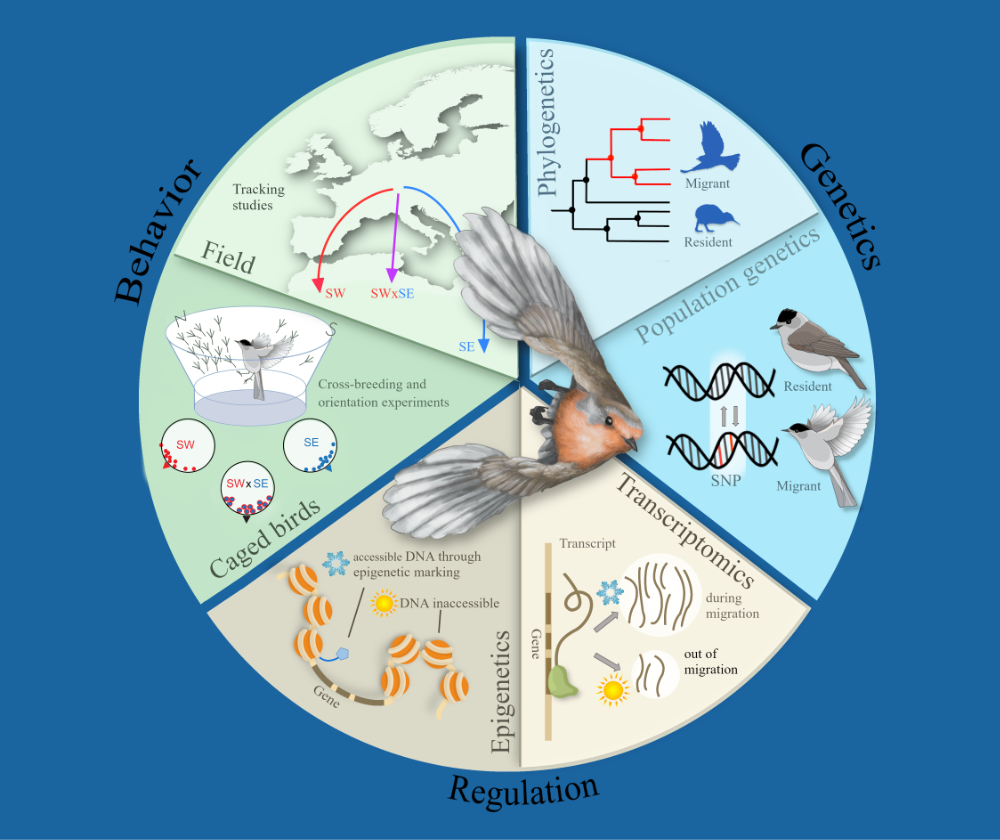Speaker
Description
Toby Doyle, Jaimie Barnes, Oliver Poole, Toby Baril, William Hawkes, Eva Jimenes Guri, Karl Wotton
Migration is a widely observed phenomenon found across many lineages with the ability to undergo long-distance movement is underpinned by various morphological, physiological and behavioural traits, the genetic basis of which are poorly understood. Recently, we have unpacked the genetic mechanisms underpinning migration in the marmalade hoverfly (Diptera: Syrphidae) by detecting differential gene expression between female summer and female migratory forms. Male hoverflies also migrate, but sex ratios change from approximately equal in northern Europe to >90% female in southern Europe suggesting males are poorer long-distance migrants. To elucidate the mechanisms underpinning this sex difference we first carried out morphological and physiological experiments on actively migrating male and female flies in the Pyrenees. We then conducted genome-wide transcriptomic comparison to determine the genetic impact on this apparent sex bias. Our experiments in the field exhibited a nuanced and complex set of results with males and females showing similar physiological adaptations such as hyperphagia, starvation and cold tolerance, but significantly different morphological differences including wing widths, wing aspect ratio, wing loading. Through additional analysis we have determine that females are likely much older than male migrants leading us to the hypothesis that males are dying en route in southward migration with females joined by more ‘local’ males throughout their long migration. This hypothesis is backed up by our analysis of differentially expressed genes. Here, we revealed that males are metabolically very active but 'live fast and die young', spending their resources mating and fighting during migration while not maintaining energy balance or the health of body tissues as seen in female migrants. Finally, our study also highlights the role of a conserved cellular component that mediates energy allocation in this process and provides a wealth of testable hypotheses for future research.

